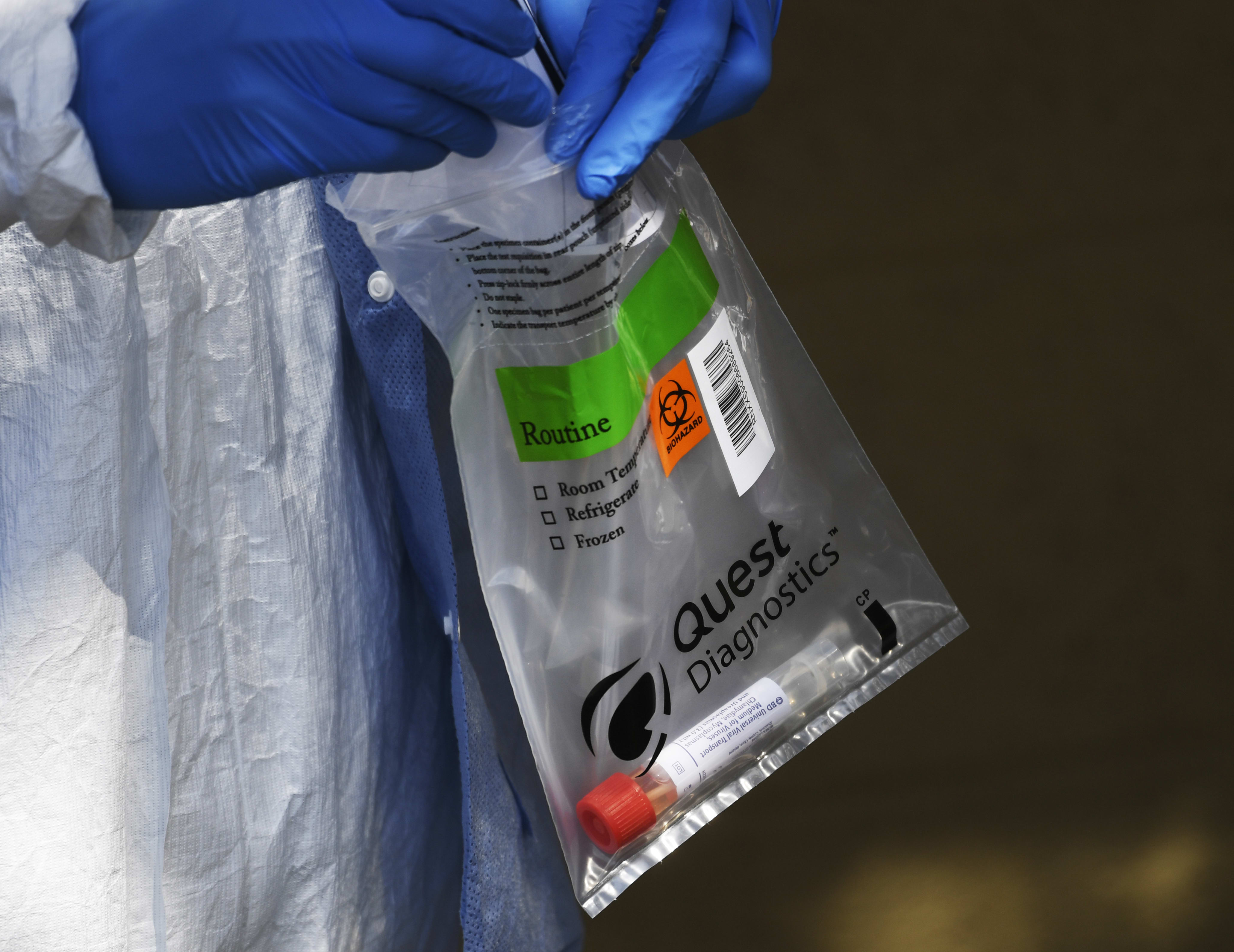
A medical provider bags a completed test at the STRIDE Community Health Center’s COVID-19 drive-thru testing site at the Aurora Health and Wellness Plaza March 26, 2020.
Andy Cross | The Denver Post | Getty Images
The Food and Drug Administration has issued an emergency use authorization for a new coronavirus test from Quest Diagnostics that allows people to collect their sample from home, the company announced Thursday.
The company said it will make more than 500,000 of the kits available by the end of next month. The self-collection kit will include a swab that allows people to collect a sample from their nostril and can then be shipped overnight with FedEx to a lab, the company said.
“COVID-19 molecular diagnostic testing has been constrained partly by limited supplies of swabs and trained healthcare professionals to do the specimen collection,” Quest CEO Steve Rusckowski said in a statement. “The self-collection kit enables an individual to self-collect at home, and the process is far less invasive and uncomfortable than many traditional methods.”
Shares of Quest were up more than 3% in trading.
Quest’s new test is not the first to allow people to collect their own samples at home and ship it in to a lab. In April, the FDA cleared the first such collection kit from testing giant LabCorp.
Quest said their new test uses a specimen collection approach similar to other Quest tests being used in health care and drive-thru settings. The company said it plans to make the tests available to health care workers, states and businesses for “return-to-work testing programs.” The company did not say how long it would take to receive results with the test.
Quest is currently conducting about 80,000 tests per day and hopes to ramp that up to 150,000 by the end of June, Rusckowski said Wednesday on CNBC’s “Closing Bell.” He added that equipment shortages and delays in sample collection have made it difficult to ramp up testing capacity.
“We need to have the swabs and those capabilities in place to be able to do those kinds of volumes,” he said. “We have put a lot of energy around the … capacity for collecting the specimens. That front end is quite important.”
The announcement of the new test comes as the U.S. has failed to rapidly increase its capacity to test for Covid-19 broadly throughout the population. Early missteps and supply chain shortages have limited the country’s ability to detect the virus before people end up in the hospital in many cities.
The U.S. conducted an average of about 173,000 tests per day through April, according to data compiled by the Covid Tracking Project. Capacity has doubled since and the U.S. has so far conducted an average of 330,000 tests per day in May, according to the volunteer effort founded by reporters at The Atlantic magazine. However, the number of tests being conducted still falls far short of what some economic and public health specialists have said is needed.
To date, more than 15 million tests have been processed in the U.S., according to the Covid Tracking Project. The U.S. has more than 329 million residents, according to the U.S. Census Bureau.
Public health specialists and business executives have repeatedly said that ramping up mass testing of both symptomatic and asymptomatic people will be key in boosting confidence in Americans to return to work as well as in detecting pockets of infection before they become outbreaks. With some epidemiologists predicting an uptick of infections when the weather changes this fall, having widespread testing capacity then will be even more important, former FDA commissioner Dr. Scott Gottlieb said.
“We still need to figure out ways to get testing into sites and encourage asymptomatic or mildly symptomatic screening or we’re going to be in a difficult situation heading into the fall,” Gottlieb said on CNBC’s “Squawk Box” earlier Thursday.
Quest, along with other diagnostics manufacturers, have partnered with retailers like CVS and Walmart to provide drive-thru testing sites. At-home sample collection could prove a more convenient way for asymptomatic individuals who think they’ve been exposed to the virus to get tested.
Leave a Reply